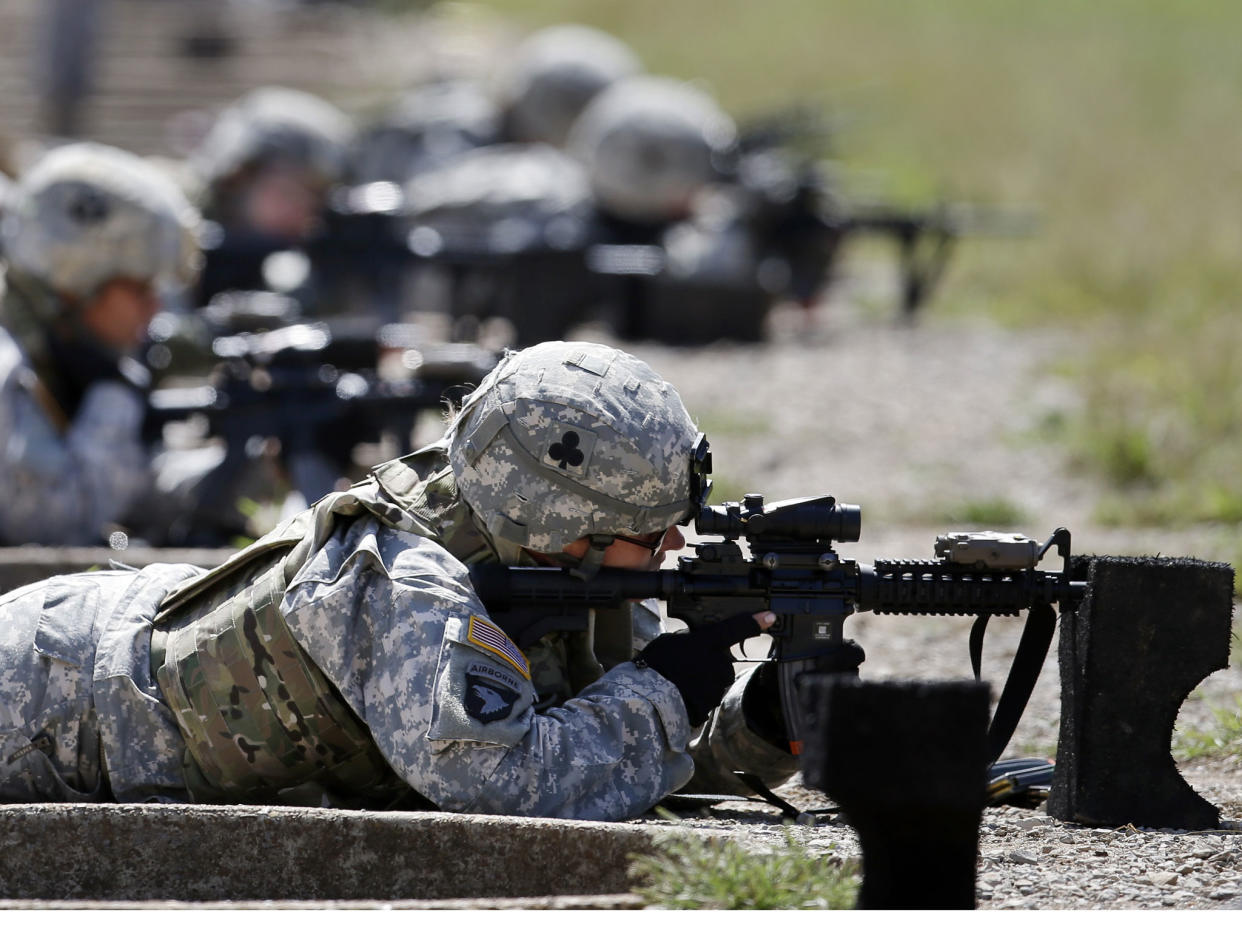I served 34 years in the army. I’m transgender. President Trump is wrong

President Trump says allowing transgender people to serve in the military would bring “disruption” that could stand in the way of the “decisive and overwhelming victory” our armed forces must strive for. Apparently, he doesn’t think transgender Americans are capable or worthy of defending our nation. But he’s wrong. Thousands of patriotic transgender Americans already put their lives on the line every day to keep our country free. We’ve been doing that since the 1700s.
I know: I was one of them.
From the time I was five years old growing up in Manitowoc, Wisconsin, I knew I was transgender. I just didn’t know what it was called. From a very early age, I always thought I should be wearing my younger sister’s clothes, and sometimes, when I was home alone, I did. When I graduated from high school, I joined the Wisconsin army national guard and my local sheriff’s department as a reserve deputy. I hoped joining those male-dominated institutions might help me deal with the certainty I had that I was a woman, not a man. It didn’t, but I had no better ideas: I didn’t know anyone else out there had any idea what I was going through. It wasn’t until I was 25 and read about Renée Richards, a professional tennis player who had to sue the US tennis association to be allowed to play as a woman, that I realised I wasn’t alone.
In the army, I worked hard to suppress my authentic self. I knew that being transgender would disqualify me from the job I loved – and it was a job I did well. I served in the Army infantry for 34 years and 10 months. As a captain, I commanded a light infantry unit of 100 personnel and deployed twice. Eventually, I was promoted to colonel. I retired as director of manpower and personnel for the Wisconsin army and air national guard.
All along, I kept my secret. Sometimes, very infrequently, I would find a few hours, or a few days, when I could be my authentic self: I’d wear women’s clothes, behind the safety of a locked front door. But then I’d purge everything, destroying all the evidence of my real identity as the guilt set in, because I knew I wasn’t exhibiting the behaviour expected of a man.
I retired in 2004 but still felt a need to serve my country. I became a lead instructor at the army’s force management school at Fort Belvoir in Virginia. While I was there, I decided to transition from male to female. It was time to live up to my own expectations, rather than the expectations of others. I took six weeks off work, and when I came back, my boss told me the school didn’t need me anymore and that he had already hired my replacement. For a career army infantry colonel, being told I was no longer needed without any real explanation was a slap in the face. I was upset, but I knew I had no recourse – it was years before President Barack Obama would sign an executive order protecting federal workers from discrimination on the basis of gender identity or sexual orientation.
I loved my country, though, and I knew I could still help keep it safe and strong. In 2008, I took a new job at the Pentagon working in the army’s headquarters as a civilian analyst. People think of the Pentagon as a conservative institution, but my experience there was nothing but positive. I was known for the skills I brought to my work, for the analysis I did and for the recommendations I made – not for my gender identity. No one ever mentioned or questioned who I might have been in a different life.
Now that Trump has decided to overturn Obama’s order to allow transgender Americans to serve openly, I can’t imagine what my fellow trans service members are feeling today. I know transgender people are going to get up tomorrow, put their uniform on and defend their country – just like they do every day – but I also know they’re going to be wondering if the commander in chief is really looking out for their best interests. Transgender soldiers, sailors, marines and airmen are among the top performers in their fields.
When trans service members can serve openly and receive necessary medical treatment, they are allowed to focus entirely on their jobs. As a result, their individual readiness increases, as does that of their unit. When you live inauthentically, hiding your identity from your colleagues, your friends, your family, it brings inevitable distractions. I’m proud of my service, and I would never have made the rank of colonel in an extremely competitive military hierarchy if I weren’t an excellent leader. But I still sometimes wonder how much better an NCO and an officer I could have been if I had been able to transition and serve authentically during my time in the army.
People are afraid of what they don’t know or what they don’t understand. It’s much more difficult to hate and discriminate against someone when you know their story. Maybe the president will listen to some of the stories of the brave men and women, like me, who serve our country proudly. In the military, the most important thing is to get the job done. Getting the job done is based on a person’s character and ability. An individual’s gender identity has no influence on those things. It’s a shame Trump doesn’t realise that.
© Washington Post

 Yahoo News
Yahoo News 
